第54章 VIII THE ROMANCE OF ORTHODOXY(6)
The true philosophy is concerned with the instant. Will a man take this road or that?--that is the only thing to think about, if you enjoy thinking. The aeons are easy enough to think about, any one can think about them. The instant is really awful: and it is because our religion has intensely felt the instant, that it has in literature dealt much with battle and in theology dealt much with hell. It is full of DANGER, like a boy's book: it is at an immortal crisis. There is a great deal of real similarity between popular fiction and the religion of the western people.
If you say that popular fiction is vulgar and tawdry, you only say what the dreary and well-informed say also about the images in the Catholic churches. Life (according to the faith) is very like a serial story in a magazine: life ends with the promise (or menace)
"to be continued in our next." Also, with a noble vulgarity, life imitates the serial and leaves off at the exciting moment.
For death is distinctly an exciting moment.
But the point is that a story is exciting because it has in it so strong an element of will, of what theology calls free-will.
You cannot finish a sum how you like. But you can finish a story how you like. When somebody discovered the Differential Calculus there was only one Differential Calculus he could discover.
But when Shakespeare killed Romeo he might have married him to Juliet's old nurse if he had felt inclined. And Christendom has excelled in the narrative romance exactly because it has insisted on the theological free-will. It is a large matter and too much to one side of the road to be discussed adequately here; but this is the real objection to that torrent of modern talk about treating crime as disease, about making a prison merely a hygienic environment like a hospital, of healing sin by slow scientific methods.
The fallacy of the whole thing is that evil is a matter of active choice whereas disease is not. If you say that you are going to cure a profligate as you cure an asthmatic, my cheap and obvious answer is, "Produce the people who want to be asthmatics as many people want to be profligates." A man may lie still and be cured of a malady.
But he must not lie still if he wants to be cured of a sin; on the contrary, he must get up and jump about violently.
The whole point indeed is perfectly expressed in the very word which we use for a man in hospital; "patient" is in the passive mood;
"sinner" is in the active. If a man is to be saved from influenza, he may be a patient. But if he is to be saved from forging, he must be not a patient but an IMPATIENT. He must be personally impatient with forgery. All moral reform must start in the active not the passive will.
Here again we reach the same substantial conclusion. In so far as we desire the definite reconstructions and the dangerous revolutions which have distinguished European civilization, we shall not discourage the thought of possible ruin; we shall rather encourage it.
If we want, like the Eastern saints, merely to contemplate how right things are, of course we shall only say that they must go right.
But if we particularly want to MAKE them go right, we must insist that they may go wrong.
Lastly, this truth is yet again true in the case of the common modern attempts to diminish or to explain away the divinity of Christ.
The thing may be true or not; that I shall deal with before I end.
But if the divinity is true it is certainly terribly revolutionary.
That a good man may have his back to the wall is no more than we knew already; but that God could have his back to the wall is a boast for all insurgents for ever. Christianity is the only religion on earth that has felt that omnipotence made God incomplete.
Christianity alone has felt that God, to be wholly God, must have been a rebel as well as a king. Alone of all creeds, Christianity has added courage to the virtues of the Creator.
For the only courage worth calling courage must necessarily mean that the soul passes a breaking point--and does not break.
In this indeed I approach a matter more dark and awful than it is easy to discuss; and I apologise in advance if any of my phrases fall wrong or seem irreverent touching a matter which the greatest saints and thinkers have justly feared to approach.
But in that terrific tale of the Passion there is a distinct emotional suggestion that the author of all things (in some unthinkable way) went not only through agony, but through doubt. It is written, "Thou shalt not tempt the Lord thy God." No; but the Lord thy God may tempt Himself; and it seems as if this was what happened in Gethsemane.
In a garden Satan tempted man: and in a garden God tempted God.